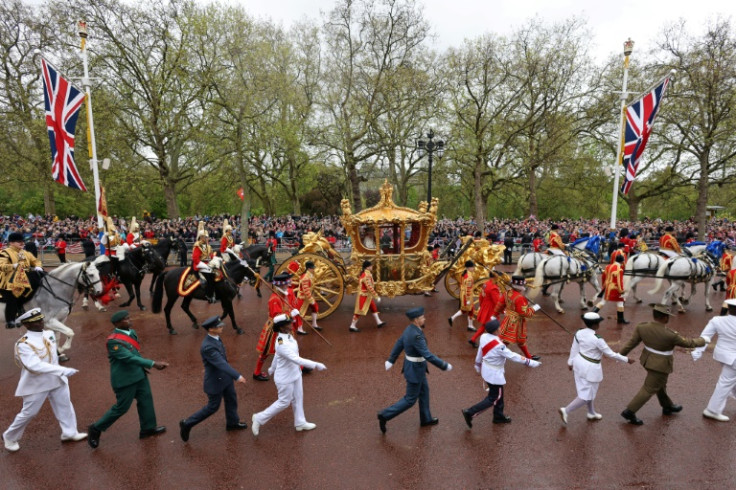UK economy falters as outlook darkens
The UK economy shrank in May on an extra public holiday for the coronation of King Charles III, official data showed Thursday, and as high inflation prolongs a cost-of-living crisis.

The UK economy shrank in May on an extra public holiday for the coronation of King Charles III, official data showed Thursday, and as high inflation prolongs a cost-of-living crisis.
The outlook darkened as the government's fiscal watchdog warned public debt -- already ballooning on pandemic spending and energy subsidies -- would rocket further in the coming decades.
Gross domestic product slid 0.1 percent in May after rising 0.2 percent the previous month, the Office for National Statistics (ONS) said.
Output slid as businesses downed tools for the extra holiday, but the performance beat market expectations for a deeper decline of 0.3 percent.
"GDP fell slightly as manufacturing, energy generation and construction all fell back with some industries impacted by one fewer working day than normal," said ONS economic statistics director Darren Morgan.
Activity remains under strain also from aggressive interest-rate hikes as the Bank of England's (BoE) attempts to dampen hot consumer prices.
UK annual inflation unexpectedly held at 8.7 percent in May.
The BoE has ramped up interest rates 13 times in a row to the current level of five percent, in turn increasing commercial loan costs for businesses and consumers.
"While an extra bank holiday had an impact on growth in May, high inflation remains a drag anchor on economic growth," noted finance minister Jeremy Hunt.
"The best way to get growth going again and ease the pressure on families is to bring inflation down as quickly as possible."
The government has sought to fend off high-pay demands from public sector workers, notably health staff and teachers who have carried out vast strike action this year.
The government, however, announced Thursday it had accepted recommendations from independent pay review bodies for salary increases of between 5.0 and 7.0 percent in the public sector.
The ONS added Thursday that the economy was just 0.2-percent larger than its pre-pandemic level, meaning it has almost flatlined over the past four years.
"May's GDP figures demonstrate that the economy remains listless and that the recovery signalled by many of the business surveys... has not taken hold yet," said Samuel Tombs, chief UK economist at Pantheon Macroeconomics.
"Looking ahead, we continue to think that the economy will regain a little momentum in the second half of this year, led by a pick-up in households' real expenditure."
June inflation data is slated for publication next Wednesday, amid heightened concern over the ongoing squeeze on living standards.
Separately, the UK government's Office for Budget Responsibility warned the public purse faced a "very risky" period owing to an array of negative factors.
UK state debt had in May exceeded 100 percent of GDP for the first time since 1961, slammed by fallout from Covid, the war in Ukraine and the cost-of-living crisis.
© Copyright AFP 2025. All rights reserved.





















